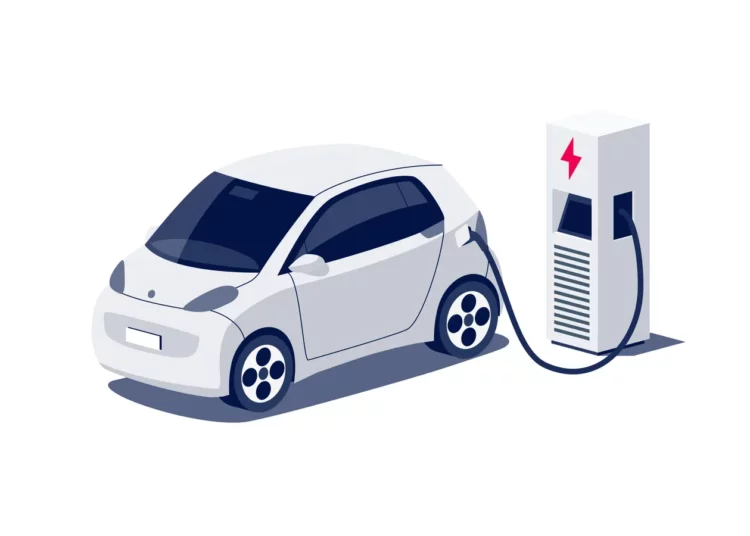A bill to introduce electric vehicles (EVs) into the nation’s transportation system is presently in the works as Senators, in their audacity, plan for what they see as a more sustainable future for the sector.
The proposed legal instrument, the Electric Vehicle Transition and Green Mobility Bill, has passed its first reading in the upper chamber of the National Assembly. We commend their effort in this direction, akin to legislating on what does not exist.
From a patriotic standpoint, the bill’s promoters hope that when enacted, it will establish a legal and policy framework to guide the country’s shift from fossil fuel-powered vehicles to electric vehicles.
They believe it will also foster local manufacturing, technological innovation, job creation and environmental protection.
This belief is enhanced because it aligns with global climate goals. It is also perceived that it could unlock new economic opportunities in Nigeria, such as integrating renewable energy into transport systems and building nationwide charging infrastructure.
The intention of this proposed legislation is undoubtedly noble, especially as it is in line with the global trend. But is the nation able and willing to adapt to international best practices as the opportunities embedded in this new scientific breakthrough unfold?
As we ponder over that inquiry, an assessment of the nation’s transportation sector will reveal that, if anything, any thought of electric vehicles in the country in the immediate foreseeable future is, at best, a pipe dream.
The country’s transport sector—land, air, and sea—is powered by fossil fuels. Given the abundance of the nation’s natural resources in this regard, how has the country fared? It is arguable if Nigeria has maximised its potential, even with the introduction of its perceptibly improved version, compressed natural gas (CNG). CNG is a fuel gas mainly composed of methane, compressed to less than one per cent of its volume at standard atmospheric pressure.
Internationally, electric vehicles (EVs) are gaining popularity because they don’t use fossil fuel and are not associated with greenhouse gas emissions. Developed economies of the world are investing heavily in this novel energy sector. China, the United States of America, Europe and other countries mainly in Asia are engaged in a seeming frenzy to take full advantage EVs present.
Lithium is the leading natural resource for producing electric vehicle batteries. It is abundant in Nigeria and is currently being stolen through illegal mining. Do our leaders even know this? It is worrisome that the will to confront the rip-off is weak-kneed at best for political and other economic exigencies related to personal pecuniary interests and class aggrandisement.
Despite the advanced status of the countries engaged in producing EVs and their benefits, several operational issues, even in those countries, still need to be addressed for EV adoption to become widespread. The nation’s investors are scarcely paying attention as they wait to be importers and distributors.
Current research efforts delve into the evolution of EVs over time and highlight their benefits, including reducing carbon emissions and air pollution. These efforts also strive to explore the challenges and difficulties entailed, such as the high cost of infrastructure, scarcity of charging stations, limited range or range anxiety, and battery performance.
These activities, which are advanced in developed countries, have yet to attract attention in Nigeria. At best, they are rudimentary in academic papers and designs as school projects.
For most pioneering countries, the thinking is centred around improving the achieved products. They are driven to enhance the charging infrastructure, increase charging stations, use battery swapping techniques, and improve battery technology to address range anxiety and reduce charging times.
The attraction in those countries is that the governments make policies that encourage investment in the industry and partly fund research efforts. At the same time, they incentivise consumers to purchase EVs through tax credits or subsidies and invest in building a robust charging infrastructure.
In these economies, industry stakeholders collaborate with governments to address any perceived challenges and promote the adoption of EVs.
In our view, the tragedy is that Nigeria’s economy is import-dependent and very averse to taking the lead in ventures of this kind. Investment in research is considered a waste of resources by both the government and businesses.
Worse, this newspaper believes the nation’s industrial base is abysmally low or non-existent. Infrastructure, in all its ramifications, is begging for action in the desired quantity and quality.
We are not trying to discourage any drive by the legislators to bring into sharp focus the novelty EVs have become globally. On the contrary, we appreciate their effort.
However, we are persuaded to urge them to consider putting part of the money they spend on other frivolities that relate to their offices into research and development that will bring to fruition the idea they are canvassing and also tone down their inordinate desire to embark on the corruption-laden gravy train.
In our view, greater nationalistic fervour and less sleaze are required to attain such high-flying innovative projects that put a country in the appropriate perspective among nations. Until then, homemade EVs will remain elusive, and discussions around them will be laughable and seen as mere talk shops.





